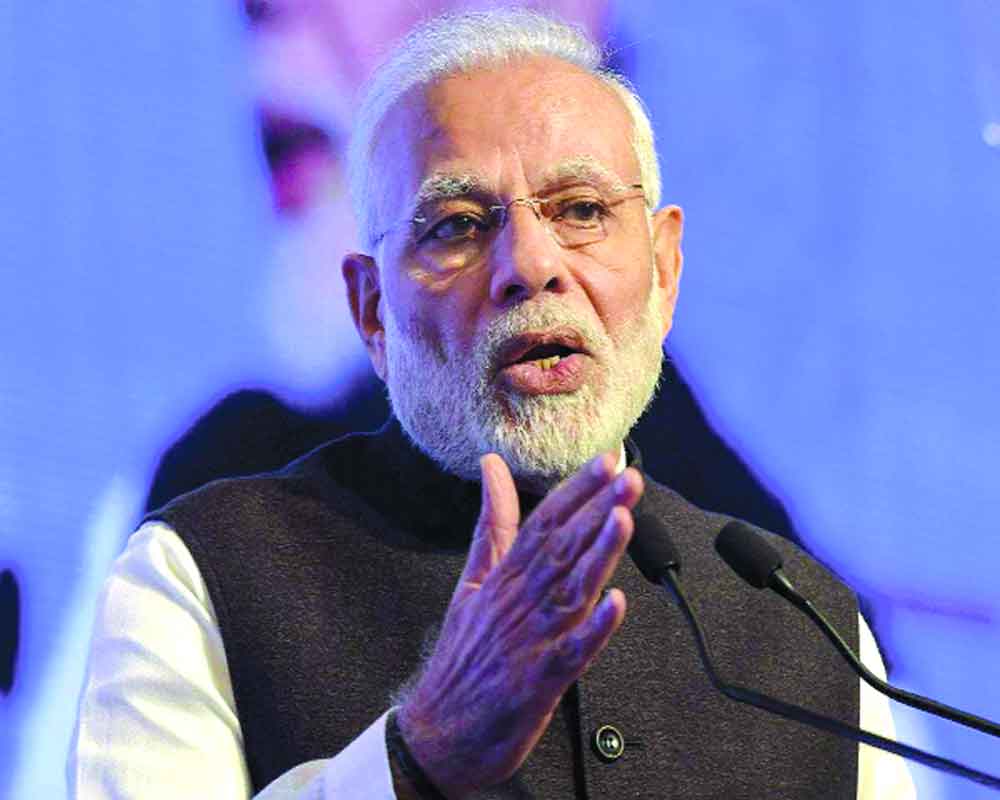


On the occasion of National Unity Day, Prime Minister Narendra Modi delivered a speech at the Statue of Unity, highlighting the need for unity to protect India's growth and development. He accused unspecified "powers" of trying to weaken India's society and unity for their own political gain, and urged citizens to recognize and fight against this alliance of "urban Naxals". The Prime Minister also paid tribute to Sardar Patel, whose vision and efforts represent the BJP government's commitment to national unity.
National Unity Day: A Legacy of Sardar Patel and a Call to Action
Background
National Unity Day, observed annually on October 31, commemorates the birth anniversary of Sardar Vallabhbhai Patel, India's first home minister and deputy prime minister. Known as the "Iron Man of India," Patel played a pivotal role in uniting the princely states into a single Indian nation after independence in 1947.
Patel's vision for a united India emphasized the importance of inclusive citizenship, regardless of religion, ethnicity, or language. He believed that national unity was essential for India's growth, development, and security.
Prime Minister Modi's Speech
On the occasion of National Unity Day 2022, Prime Minister Narendra Modi delivered a speech at the Statue of Unity, located in Gujarat. He underscored the significance of unity in protecting India's advancements and highlighted the potential threats to national cohesion.
Modi accused unspecified "powers" of attempting to divide India's society and weaken its unity for their political advantage. He urged citizens to be vigilant against this "alliance of urban Naxals," referring to alleged left-wing extremists.
The Prime Minister also paid homage to Sardar Patel, emphasizing how his legacy and efforts continue to inspire the BJP government's commitment to national unity.
FAQs
1. Who was Sardar Vallabhbhai Patel?
He was India's first home minister and deputy prime minister, known for his pivotal role in uniting the princely states into a single Indian nation after independence.
2. Why is National Unity Day observed?
To commemorate Patel's birth anniversary and to emphasize the importance of unity for India's growth, development, and security.
3. What were the threats to national unity highlighted by Prime Minister Modi?
Unspecified "powers" and an "alliance of urban Naxals" attempting to divide India's society for political gain.
4. What did the Prime Minister urge citizens to do?
To be vigilant against these threats and to fight for national unity.
5. How is the BJP government honoring Patel's legacy?
By emphasizing the importance of national unity and implementing policies that promote inclusive citizenship and foster a sense of belonging among all Indians.

Following his party's disappointing performance in the recent Bihar Assembly election, politician Prashant Kishor has raised concerns about the voting results, stating that they did not align with the public sentiment he witnessed during his campaign. Despite this setback, Kishor remains determined to build a stronger political organization and continue engaging with the public in preparation for future elections. He also addressed criticisms of his role as an election strategist, reminding critics that one loss does not define his political future.

Indian government under the leadership of Prime Minister Narendra Modi has introduced four new labour codes aimed at protecting the rights and well-being of 40 crore workers across the country. Union Minister Mansukh Mandaviya has hailed the move as transformative and a major step towards ensuring the welfare of the workforce. The new codes bring in much-needed changes such as formalisation and transparency through appointment letters, and universal social security coverage for all workers including gig and platform workers.

In Uttar Pradesh's Lakhimpur Kheri, a police constable is in hot water for allegedly forging a court order to clear his name in an old case, with the intention of securing a promotion. The fabricated document surfaced during an internal investigation, prompting authorities to file a fresh case against the constable. This incident adds to the growing issue of corruption and misuse of power within the police force.

The Supreme Court has directed the formation of a Special Investigation Team (SIT) to conduct a fact-finding inquiry against Vantara, an animal rescue and rehabilitation center in Gujarat, following allegations of non-compliance with laws and acquisition of animals. The SIT, headed by former apex court judge J Chelameswar, will also look into reports of irregularities and complaints from NGOs and wildlife organizations. Vantara has assured full cooperation to the probe and reaffirmed their commitment to animal welfare.

The ongoing family feud within the Rashtriya Janata Dal (RJD) continues to escalate as three more daughters of party patriarch Lalu Prasad Yadav have left the family residence in Bihar's capital Patna. This comes just a day after another daughter, Rohini Acharya, publicly denounced the family and quit politics following the party's poor performance in the recent elections. Amidst allegations of insults and mistreatment, the saga continues to unfold within the Yadav family.

In a special lecture series in Bengaluru, RSS chief Mohan Bhagwat emphasized on the Hindu identity as a responsible and proud son of Bharat Mata. He urged the Hindu society to come together and share the message of 'Vasudhaiva Kutumbakam' with the rest of the world. Bhagwat also recalled the RSS founder and its journey of facing opposition and growth through dedication and sacrifice of its volunteers.

As the West Bengal Assembly elections near, the political battle between Bharatiya Janata Party (BJP) and Trinamool Congress (TMC) has intensified on social media. Following the BJP's victory in Bihar, the party declared its hopes to defeat TMC in Bengal on a popular platform, while TMC leader Kunal Ghosh responded with a proverb highlighting the BJP's potential failure in Bengal. Despite BJP's confidence, TMC remains unfazed and asserts their strong hold in the state.

Congress leader and Leader of Opposition in Lok Sabha, Rahul Gandhi, was criticized by BJP's Shehzad Poonawalla for going on a jungle safari in Madhya Pradesh's Satpura Tiger Reserve instead of focusing on the ongoing Bihar elections. Gandhi had earlier claimed that "vote theft" had taken place in several states, including Madhya Pradesh. BJP's Poonawalla mocked Gandhi's "priorities" and referred to him as the "Leader of Paryatan and partying."

The sudden blast in Delhi that left several people dead has shocked everyone, including Bollywood stars Raveena Tandon, Thalapathy Vijay, Vineet Kumar Singh, and Riddhima Kapoor Sahni. While police are investigating all possible angles, including a terrorist conspiracy, Raveena's comments on social media suggest a link to terrorist activity. The celebrities also expressed their condolences to the victims and their families.

In a historic move, the Madhya Pradesh government has announced that it will be releasing 32 prisoners, including nine from tribal communities, on November 15 to mark Janjatiya Gaurav Diwas or Tribal Pride Day. This decision, initiated by Governor Mangubhai C Patel, aims to recognize and celebrate the contributions of tribal communities on the birth anniversary of their icon, Birsa Munda. This is the first time in India that prisoners will be released on grounds of good conduct while serving jail terms. However, it should be noted that the release will not apply to convicts in cases of rape or the Protection of Children from Sexual Offences (POCSO), as well as those convicted in multiple murder cases.